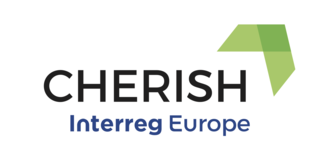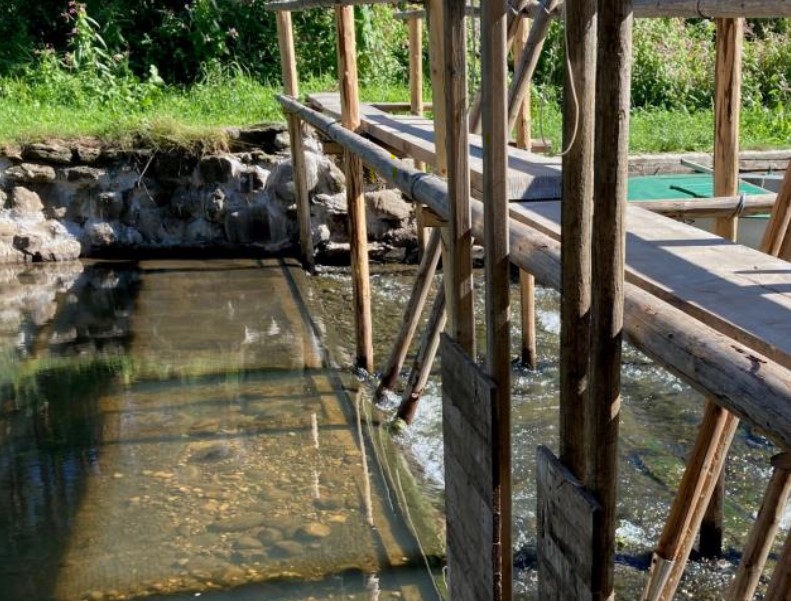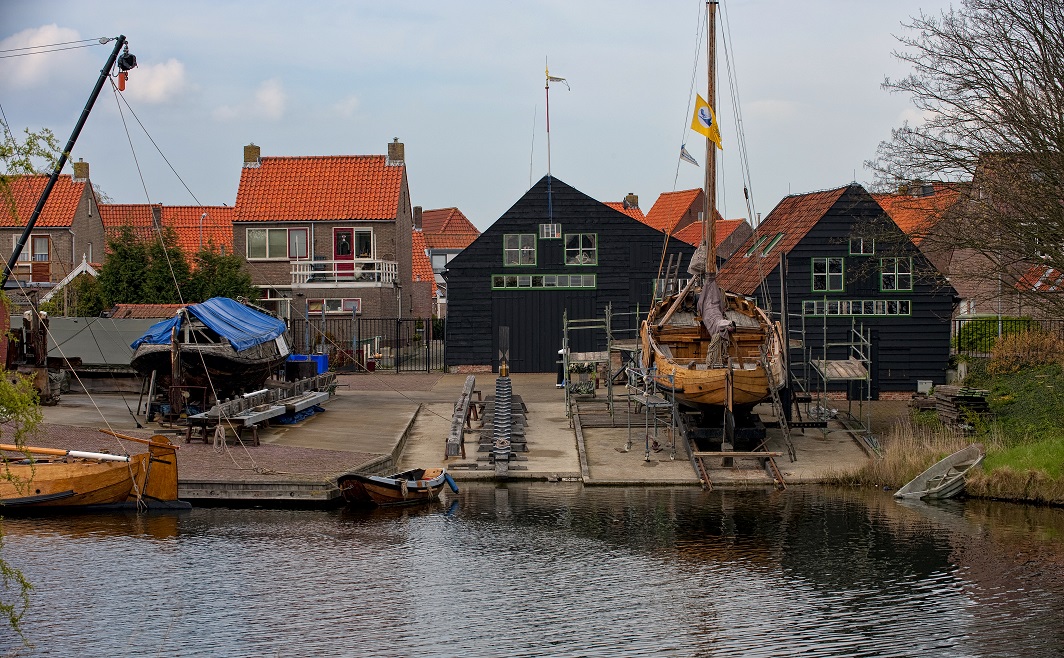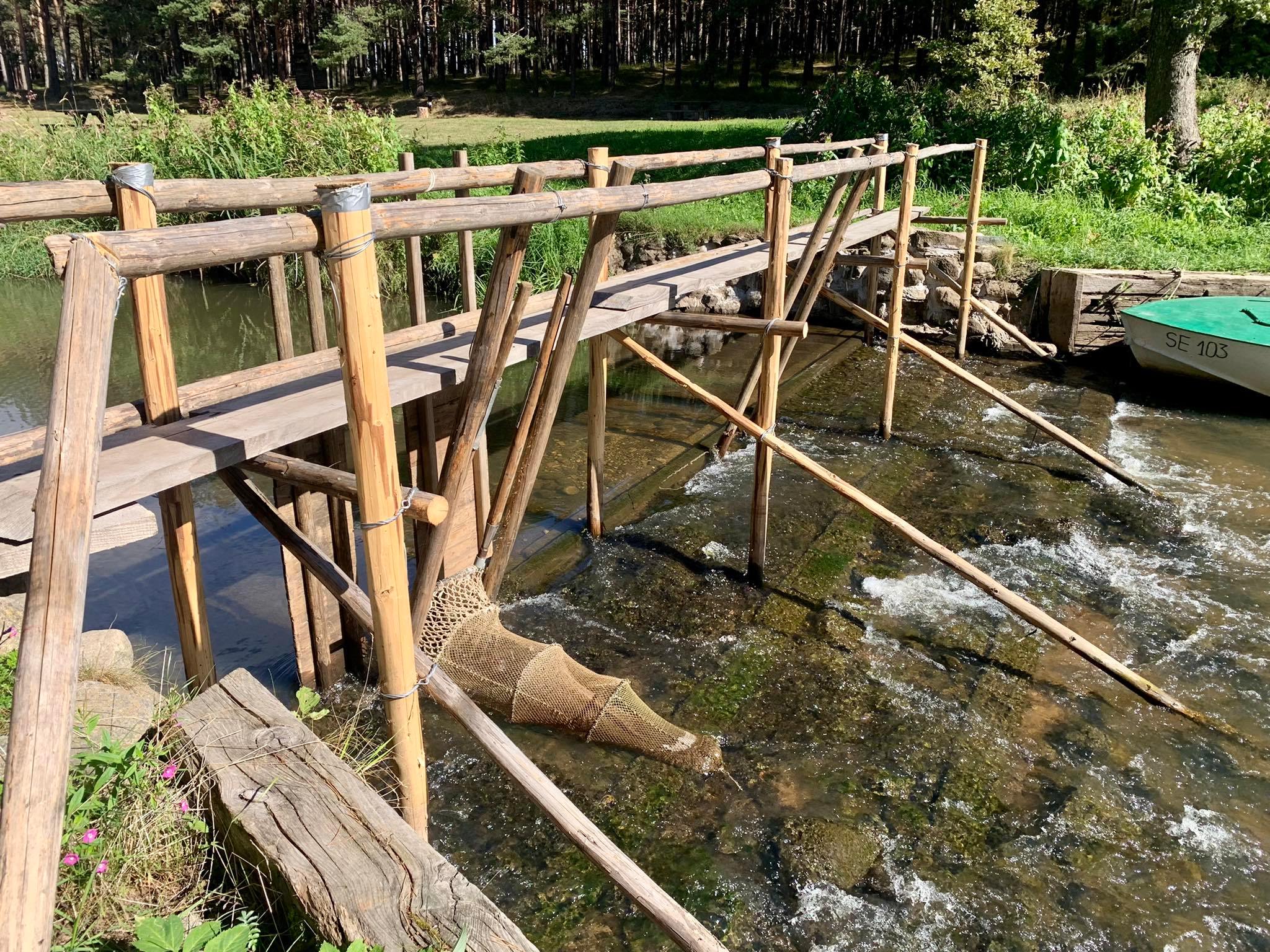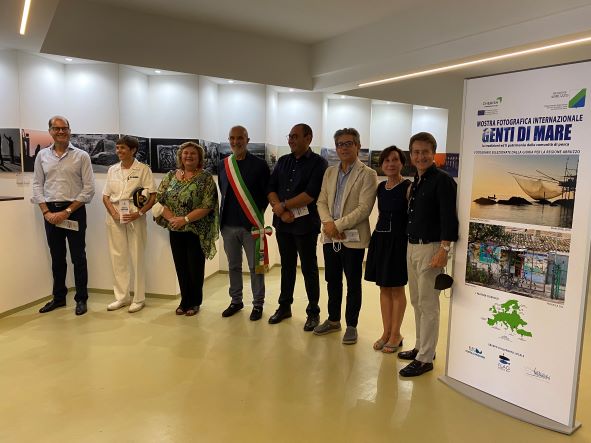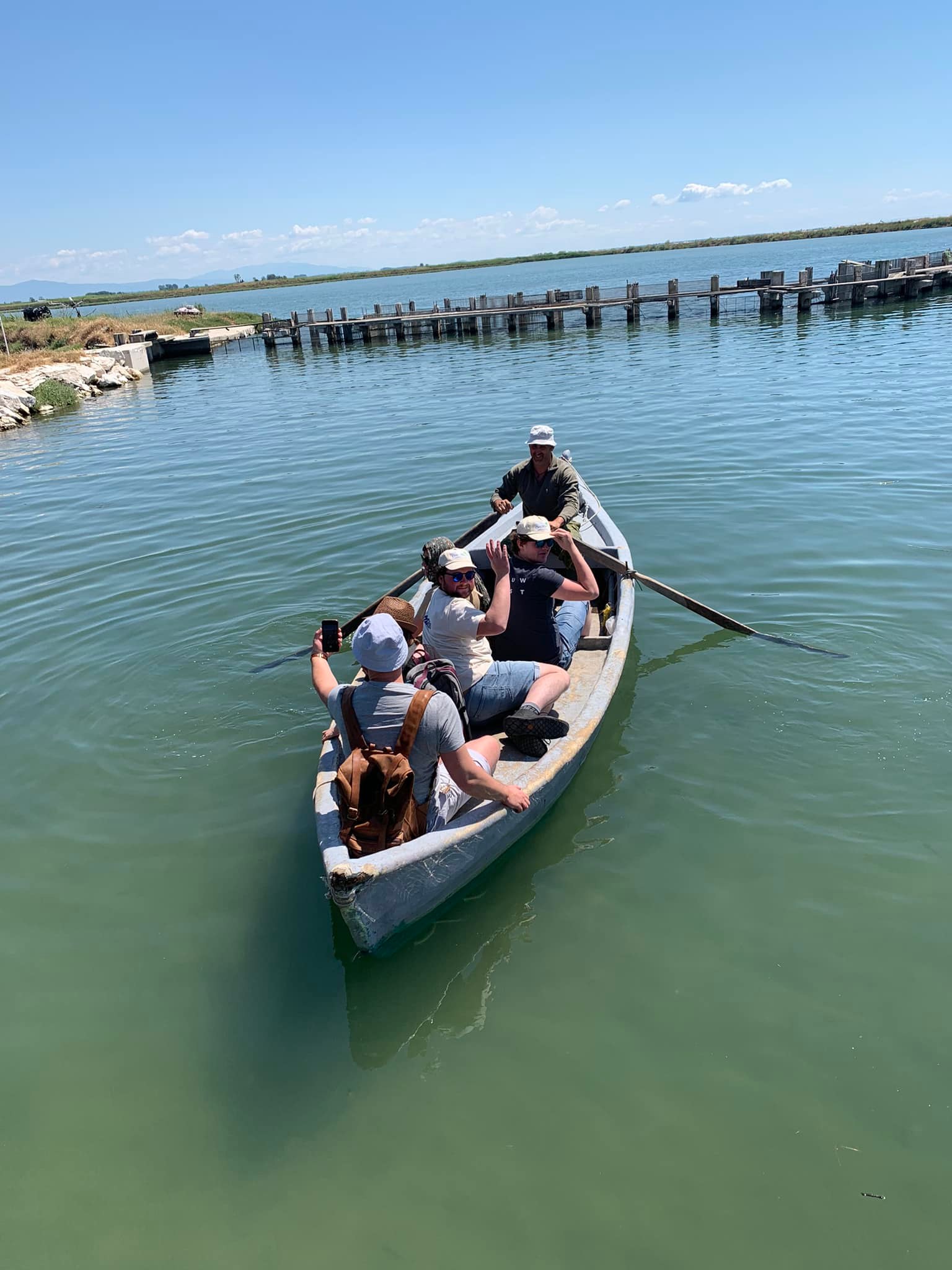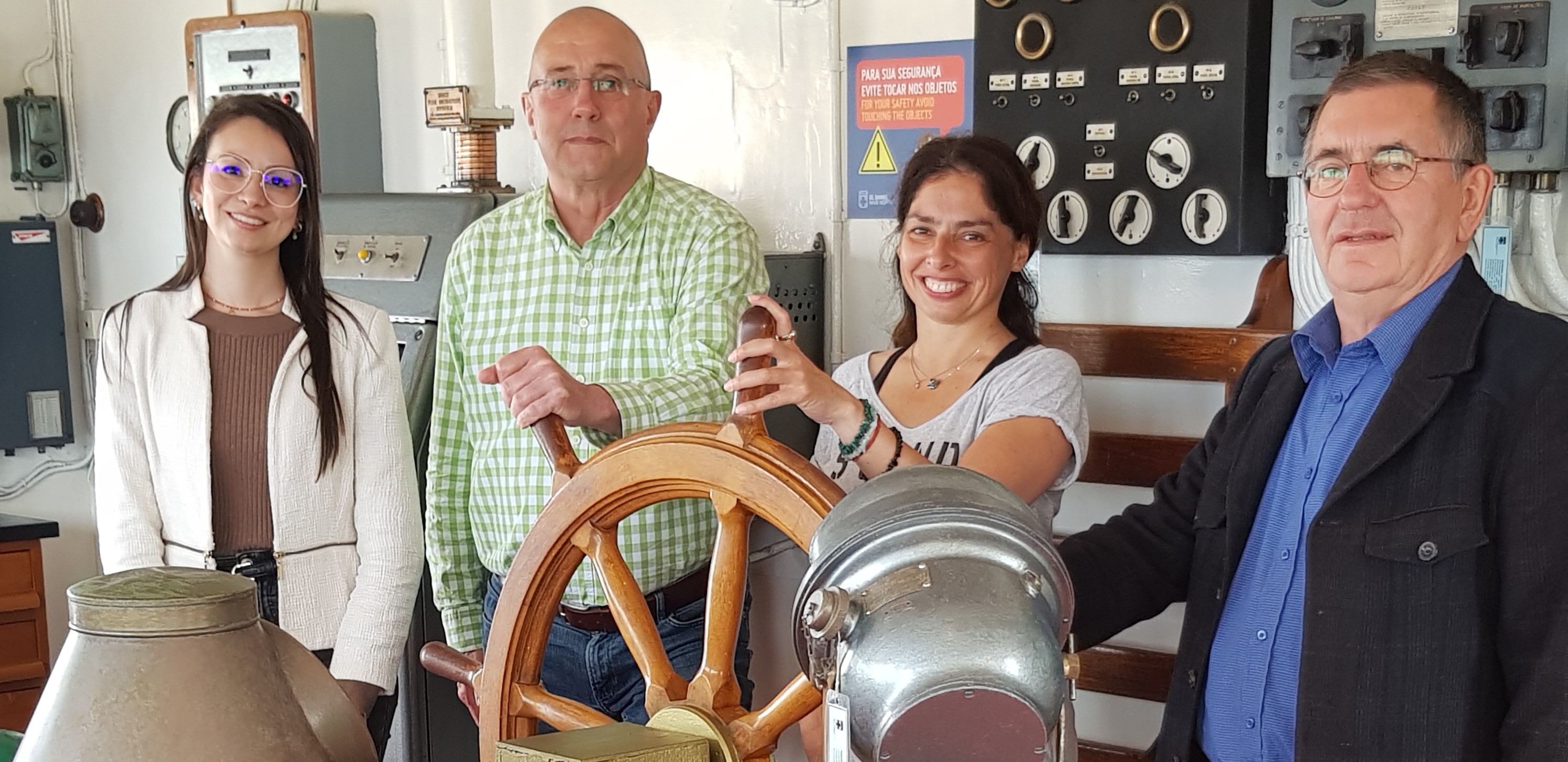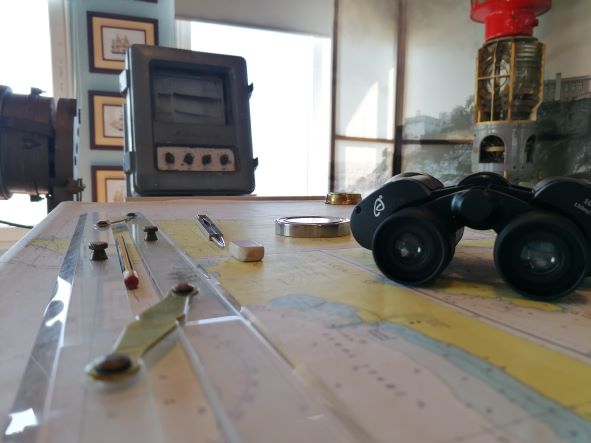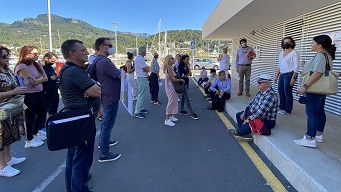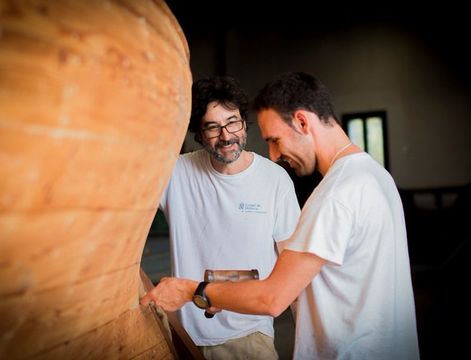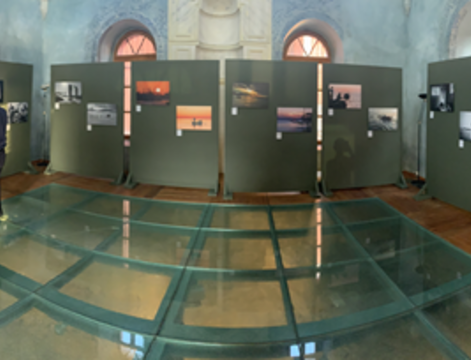Riga Planning Region team was delighted to receive Cherish project partners from the Municipality of Kavala (Greece), the Abruzzo Region (Italy) and Snowchange Cooperative (Finland) on 6-7 September 2022 to share their experience in preserving and promoting coastal fishing cultural heritage of Latvian in the Gulf of Riga of the Baltic Sea. Greece and Kavala were inspired by several of the Good Practices from the Latvian region and have transferred elements to their Action Plans.
CHERISH partners visited the Ethnographic Open-Air Museum and travelled back to the 18th centrury to learn about the cultural heritage of fishing and the old fishermen's homesteads and their lifestyles. The Daugava Museum showcased the local cultural heritage and history of fishing along Latvia's largest river, the Daugava, where salmon and lamprey were once caught and processed for Riga Central market clientelle.
At the Carnikava’s Local History Centre they saw an interactive digital exhibition created for grown-up visitors and children and a model of traditional fishing gear – an example how a local history museum in a modern way preserves and promotes ancient traditions and the history of fishing for new generations and maintains interest in fishing.
In Svētupe partners were informed about the traditional lamprey weir, lamprey fishing and the nature of the lamprey. Deep insight into nature and fishing secrets of lamprey – Riga region Traditional Ecological Knowledge was provided. To catch lamprey, a number of conditions should be observed arising from the nature of this special fish - the falling autumn leaves make the water bitter and the full moon is not pleasant for lampreys. These nuances were explained by the owners of the Svētupe weir, whose main occupation involves fishing in the sea, catching Svētupe lampreys and organising various related events, as well as processing the fish - which is the main source of income. CHERISH partners enjoyed lamprey soup cooked on the campfire and grilled lampreys.
The fish processing company Reinis-b, which is an excellent example of a family business, introduced the visitors to its activities - from fish processing to distribution and marketing. The company promotes small-scale trade and direct sales to customers - participation in markets and various outings, thus maintaining a closer relationship with the customer and always offering the best quality product.
At the fishermen's farm Dieniņas, the owner presented the fascinating stories about the history of Berzciems, one of the oldest fishing villages in the Gulf of Riga, and the family's 3rd generation fishing experience, thus preserving and promoting the cultural heritage of fishing.
Thank you for your contribution to the preservation and maintenance of the coastal fishing heritage! We would like to thank Kārlis Fogelis (Ethnographic Open-Air Museum of Latvia), Aivars Siliņš (Daugava Museum), Olga Rinkus (Carnikava’s Local History Centre), Inese and Nikolajs Koluškins (Svētupes Lamprey weir), Alla Bečere (Fish Processing Company Reinis-b) and Iveta Celkarte (Fishermen Homestead Dieniņas) for their hospitable welcome and cooperation.
